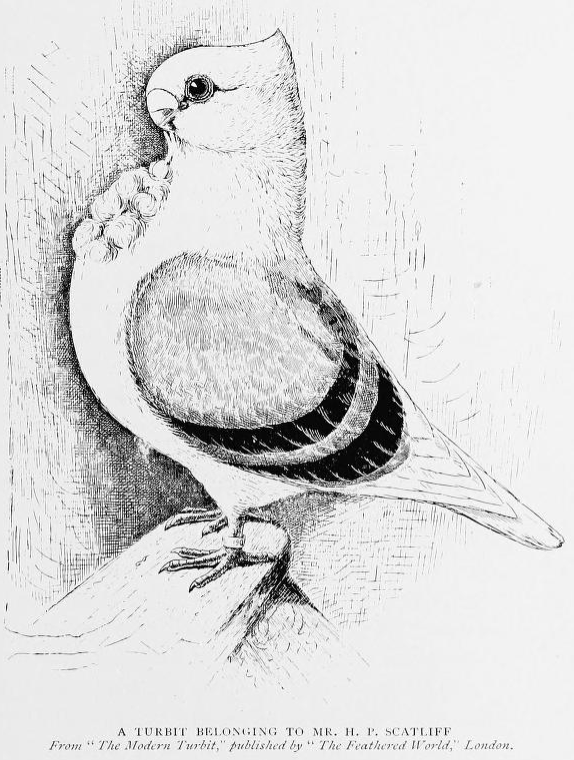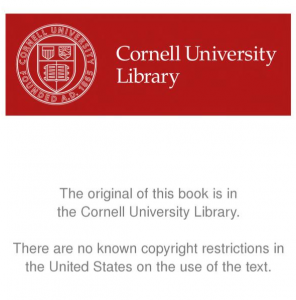In 2010, Aaron Swartz, a 26-year-old computer programmer and founder of Reddit, downloaded thousands of scholarly articles from the online journal archive JSTOR. He had legal access to the database through his research fellowship at Harvard University; he also, however, had a history of dramatic activism against pay-for-content online services, having previously downloaded and released roughly 100,000,000 documents from the PACER (Public Access to Court Electronic Records) database, which charges eight cents per page to access public files. Given his status as a prominent “hacktivist” and the sheer quantity of files involved, law enforcement agents concluded that Swartz planned to distribute the cache of articles and indicted him on multiple felony counts carrying a possible sentence of $1 million in fines and 35 years in prison.
Swartz was slated to go to trial this year but committed suicide in early January, prompting a public outcry against the prosecution in his case. Swartz was a prominent voice in the heated debate surrounding modern copyright law and public access and use (see his 2008 “Guerrilla Open Access Manifesto”). New York’s current issue contains a great feature from Wesley Yang discussing Swartz’s activism, his life, and the controversy in which he was embroiled.
In the ongoing debate over Swartz’s prosecution, we’ve pulled together a brief reading list on the issues surrounding American copyright in the digital age from OUP’s stable:
Copyright’s Paradox by Neil Weinstock Netanel
Netanel weighs current IP law against the basic right of freedom of speech. Like Swartz, he finds it unacceptably constricting.
The Oxford Introductions to U.S. Law: Intellectual Property by Dan Hunter
A concise overview of the current state and history of IP law in America from a prominent New York University IP expert.
Copyright and Mass Digitization by Maurizio Borghi and Stavroula Karapapa
Two UK scholars discuss “whether mass digitisation is consistent with existing copyright principles.”
How to Fix Copyright by William Patry
A Senior Copyright Counsel at Google takes a look at the changing economic realities of the globalizing, digitizing world and concludes that our government must “remake our copyright laws to fit our times.”
Democracy of Sound by Alex Sayf Cummings
An overview of music piracy stretching back to the advent of recorded sound. The RIAA made headlines throughout the last decade by litigating against users who shared music online, but musicians, record companies, songwriters, and fans were navigating this territory for nearly a century before the Internet became a factor.
Unfair to Genius: The Strange and Litigious Career of Ira B. Arnstein by Gary Rosen
The story of one early 20th century musician who spent decades conducting high-profile lawsuits against the leading pop icons of the day. Though he never won a single case, Ira Arnstein managed to have a significant impact on the shape of music copyright through the decisions in his numerous cases.
Without Copyrights: Piracy, Publishing, and the Public Domain by Robert Spoo
Spoo homes in on the contested publication of Ulysses to reveal the impact on copyright of literary modernism (and vice versa). Characters such as Ezra Pound, the infamous publisher Samuel Roth, and of course James Joyce flesh out a revealing story about artists grappling with free speech and authorship.
Oxford University Press is committed to developing outstanding resources to support students, scholars, and practitioners in all areas of the law. Our practitioner programme continues to grow, with key texts in commercial law, arbitration and private international law, plus the innovative new ebook version of Blackstone’s Criminal Practice. We are also delighted to announce the new edition of the Max Planck Encyclopedia of Public International Law, one of the most trusted reference resources in international law. In addition to the books you can find on this page, OUP publishes a wide range of law journals and online products.
Subscribe to the OUPblog via email or RSS.
Subscribe to only law and politics articles on the OUPblog via email or RSS.
The post American copyright in the digital age appeared first on OUPblog.


There has been a lot of great writing about copyright and access to our cultural and intellectual history in the weeks since Aaron Swartz’s death. I have been retreading some of my old favorite haunts to see if there was stuff I didn’t know about the status of access to online information especially in the public domain (pre-1923 in the US) era.
I talk like a broken record about how I think the best thing that libraries can do, academic libraries in particular, is to make sure that their public domain content is as freely accessible as possible. This is an affirmative decision that Cornell University made in 2009 and I think it was the right decision at the right time and that more libraries should do this. Some backstory on this.
 So, if I wanted to share an image from a book that Cornell has made available, I have to check the guidelines link above and then I can link to the image, you can go see it and then you can link to the image and do whatever you want with it, including sell it. This is public domain. The time and money that went into making a digital copy of this image have been borne by the Internet Archive and Cornell University. The rights page on the item itself (which I can download in a variety of formats) is clear and easy to understand.
So, if I wanted to share an image from a book that Cornell has made available, I have to check the guidelines link above and then I can link to the image, you can go see it and then you can link to the image and do whatever you want with it, including sell it. This is public domain. The time and money that went into making a digital copy of this image have been borne by the Internet Archive and Cornell University. The rights page on the item itself (which I can download in a variety of formats) is clear and easy to understand.
Compare and contrast JSTOR. Now let me be clear, I am aware that JSTOR is a (non-profit) business and Cornell is a university and I am not saying that JSTOR should just make all of their public domain things free for everyone (though that would be nice), I am just outlining the differences as I see them in accessing content there. I had heard that there were a lot of journals on JSTOR that were freely available even to unaffiliated people like myself. I decided to go looking for them. I found two different programs, the Register and Read program (where registered users can access a certain number of JSTOR documents for free) and the Early Journal Content program. There’s no front door, that I saw, to the EJC program you have to search JSTOR first and then limit your search to “only content I can access” Not super-intuitive, but okay. And I’m not trying to be a pill, but doing a search on the about.jstor.org site for “public domain” gets you zero results though the same is true when searching for “early journal content” and also for “librarian.” Actually, I get the same results when I search their site for JSTOR. Something is broken, I have written them an email.
 So I go to JSTOR and do a similar search, looking for only “content I can access” and pick up the first thing that’s pre-1923 which is an article about Aboriginal fire making from American Anthropologist in 1890. I click through and agree to the Terms of Service which is almost 9000 words long. Only the last 260 words really apply to EJC. Basically I’ve agreed to use it non-commercially (librarian.net accepts no advertising, I an in the clear) and not scrape their content with bots or other devices. I’ve also seemingly acquiesced to credit them and to use the stable URL, though that doesn’t let me deep-link to the page with the image on it, so I’ve crossed my fingers and deep-linked anyhow. I’m still not sure what I would do, contact JSTOR I guess, if I wanted to use this document in a for-profit project. Being curious, I poked around to see if I could find this public domain document elsewhere and sure enough, I could.
So I go to JSTOR and do a similar search, looking for only “content I can access” and pick up the first thing that’s pre-1923 which is an article about Aboriginal fire making from American Anthropologist in 1890. I click through and agree to the Terms of Service which is almost 9000 words long. Only the last 260 words really apply to EJC. Basically I’ve agreed to use it non-commercially (librarian.net accepts no advertising, I an in the clear) and not scrape their content with bots or other devices. I’ve also seemingly acquiesced to credit them and to use the stable URL, though that doesn’t let me deep-link to the page with the image on it, so I’ve crossed my fingers and deep-linked anyhow. I’m still not sure what I would do, contact JSTOR I guess, if I wanted to use this document in a for-profit project. Being curious, I poked around to see if I could find this public domain document elsewhere and sure enough, I could.
At that point, I quit looking. I found a copy that was free to use. This, however, meant that I had to be good at searching, quite persistent and not willing to take “Maybe” as an answer to “Can I use this content?” I know that when I was writing my book my publishers would not have taken maybe for an answer, they were not even that thrilled to take Wikimedia Commons’ public domain assertions.
As librarians, I feel we have to be prepared to find content that is freely usable for our patrons, not just content that is mostly freely usable or content where people are unlikely to come after you. As much as I’m personally okay being a test case for some sort of “Yeah I didn’t read all 9000 words on the JSTOR terms and conditions, please feel free to take me to jail” case, realistically that will not happen. Realistically the real threat of jail is scary and terrible and expensive. Realistically people bend and decide it’s not so bad because they think it’s the best they can do. I think we can probably do better than that.
By Alice Northover
It’s been an eventful week in Oxford spires (although I write this from the New York office which contains no spires). We had a kerfuffle over the OED and we’re gearing up for the Place of the Year extravaganza next week. So what have we learned in between?
Neither plank nor batman nor owl of night keep these students from the swift completion of their appointed reads. But milk might.
Appropriate after Black Friday and Cyber Monday, our OED Appeal of the week: Doorbuster.
The DSM definitions are always a source of controversy, the newest being personality disorders.
The end is in sight for the published works of Leonhard Euler.
How do you come up with the perfect brand name? Wordnik [good name] has the scoop.
Can you own page turning?
Our Australian cousins, the ANDC, have Ned Kelly in words and phrases (that I would very much like to adopt).
Wikipedia is partnering with JSTOR, so those citations may be getting better.
NYU Local examines replyallcalyse, or how Nicholas Cage will make your inbox explode.
Are you a hipster? What your reading habits reveal (about your cigarette jeans-wearing, Williamsburg neighbors, not you of course).
New on the dictionary insult list: “Give him credit this week, he’s got his very own word in the English dictionary, omnishambles.” (As opposed to the more traditional: “If you look up stupid in the dictionary, your face is there.”)
Can e-books help get books to remote communities in Latin America?
The Irish Times has appointed a poetry editor. (h/t Leslie Kaufman)
I’m sad not more people read Rob St. Amant’s amazing article on robots replicating animal tool use (promoting OUPblog content I know but it’s awesome).
Alexandra Lange on place setting anxiety.
And finally, stay curious my friends.
Click here to view the embedded video.
Alice Northover joined Oxford University Press as Social Media Manager in January 2012. She is editor of the OUPblog, constant tweeter @OUPAcademic, daily Facebooker at Oxford Academic, and Google Plus updater of Oxford Academic, amongst other things. You can learn more about her bizarre habits on the blog.
Subscribe to the OUPblog via email or RSS.

I saw this post circulating around facebook and, of course, the word “library” caught my eye. The Boston Globe has a longer explanation about what all the kerfuffle is about, but still uses words like “hacking.” The Demand Progress blog, the organization that Aaron directs, has this statement and some additional blog posts. The New York Times seems to have the most comprehensive explanation of what happened when and has the text of the indictment.
What we do know is that the US Government has indicted Aaron Swartz [who you may know around the internet for any number of things] for, apparently and allegedly, downloading 4mil articles from JSTOR without (I think?) the proper credentials. Aaron turned himself in. At issue are many points of JSTORs terms of service and what sort of access is given to guests of the university. As Aaron is a net activist, I’m certain this is some level of intentional move on his part, I’m quite curious to see where it goes.
Update: JSTORs official statement, Wired article with more details






Hi Jessamyn. I’m so glad you’re a broken record on this issue. I am too, and still feel that the message still hasn’t been repeated often enough.
For my longest piece on this topic, see “Open access for digitization projects,” first published in my newsletter for July 2, 2009 [ http://goo.gl/NPQF ], and reprinted with some revisions in Karl Grandin (ed.), _Going Digital: Evolutionary and Revolutionary Aspects of Digitization_, Nobel Foundation, Royal Swedish Academy of Sciences, April 2011 [ http://goo.gl/bVnSl ].
I’m currently co-convening the National and State Libraries of Australasia (NSLA) Copyright Working Group and read this article with great interest. NSLA has made a commitment to ensure that “public domain works are, to the greatest extent possible, accessible and available for unrestricted re-use by the public.” At the moment we are considering how to make this an easy process, so we are looking at options to: standardise the way we identify our public domain collections in a way that is easy to understand and eliminates complex registration or permission barriers while still maintaining appropriate acknowledgments (for creators and library collections). Here’s the NSLA Position Statement on Public Domain – http://www.nsla.org.au/sites/default/files/publications/NSLA.Public_Domain_Statement.pdf Janice van de Velde